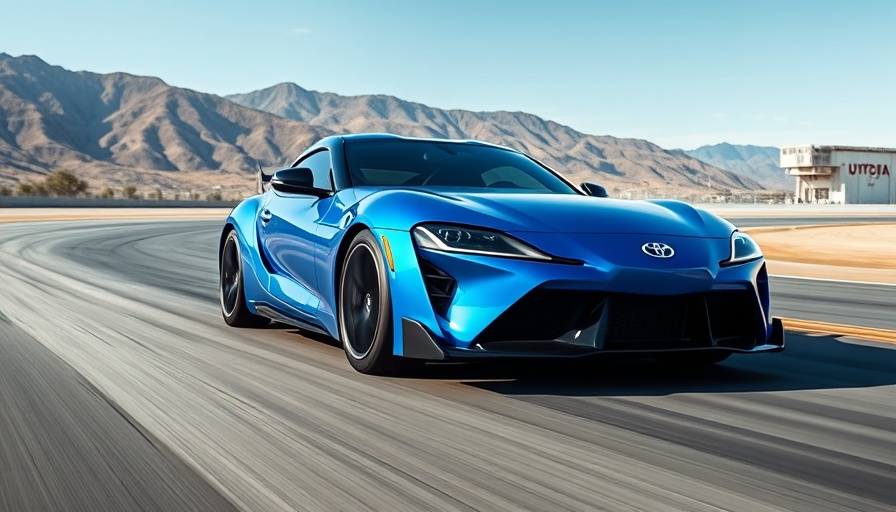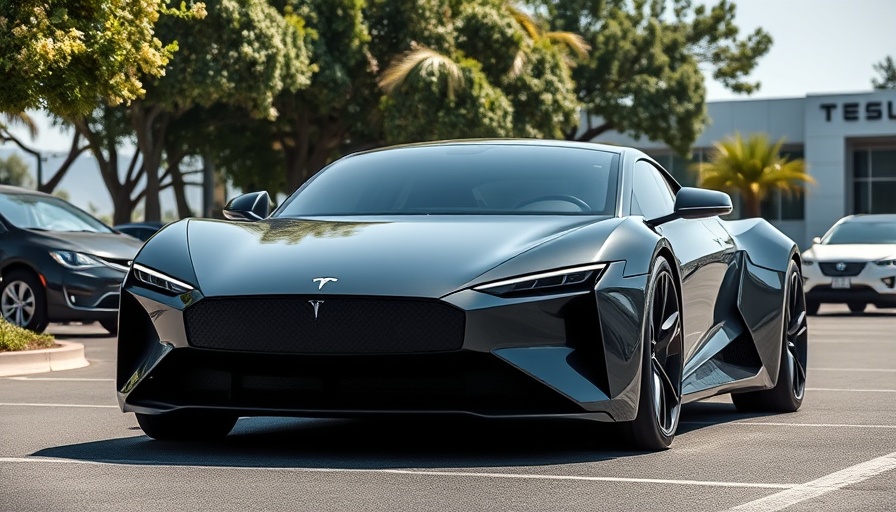
Toyota's Shift: Embracing Hybrid Technology for Sports Cars
As the automotive landscape evolves, so too does the way manufacturers approach performance vehicles. Toyota, traditionally known for its solid lineup of reliable cars, is now venturing into the realm of hybrid sports cars. This significant pivot reflects not just the pressures of tightening emissions regulations but also the growing consumer demand for more eco-friendly performance options.
Why Hybridization Matters
With many countries implementing stricter emissions standards, incorporating hybrid systems into sports cars is no longer just a trend but a necessity. Toyota's gradual integration of these systems indicates a commitment to balancing performance with sustainability. Hiroki Nakajima, Toyota's chief technology officer, emphasizes that hybrid technology can enhance the appeal of sporty vehicles while addressing environmental concerns.
What to Expect from Toyota's New Powertrain
Performance enthusiasts will be pleased to know that Toyota's new hybrid engine won't compromise on horsepower. Initially showcased in the GR Yaris M concept, this innovative powertrain combines a mid-mounted design with a turbocharged four-cylinder engine, promising around 400 horsepower. This impressive output challenges the misconception that hybrids are underpowered, signaling a potential shift in how consumers perceive hybrid vehicles.
Current GR Lineup and Future Excitement
The existing GR lineup includes the GR86, GR Supra, and GR Corolla, each offering thrilling performance. For instance, the GR Supra boasts a 3.0-liter twin-turbocharged inline-six engine that hits 60 mph in just 3.9 seconds. As Toyota broadens this range with upcoming models like the MR2 and a potential revival of the Celica, the excitement among car enthusiasts is palpable.
Market Trends: The Rising Demand for Eco-Friendly Vehicles
As consumers become increasingly eco-conscious, the automotive market is undergoing a significant transformation. Reports indicate that hybrids and electric vehicles (EVs) are seeing a sharp rise in interest, suggesting a long-term shift in vehicle preferences. Companies that fail to adapt may risk alienating themselves from a generation of drivers who prioritize sustainability in their purchasing decisions.
The Future of Sports Cars: Blending Performance with Eco-Friendliness
For manufacturers, the challenge lies in creating vehicles that maintain the thrilling aspects of sports cars while embracing eco-friendly technologies. Toyota’s developments signal a promising future where the roar of an engine is complemented by the quiet efficiency of a hybrid system. This evolution could inspire other automakers to follow suit, reshaping the entire landscape of performance cars.
As Toyota gears up to enhance its GR lineup with hybrid technology, enthusiasts can look forward to high-performance vehicles that won’t just turn heads on the racetrack but also contribute to a greener future. By marrying speed and sustainability, Toyota may just set a new standard in the industry.
 Add Row
Add Row  Add
Add 




Write A Comment